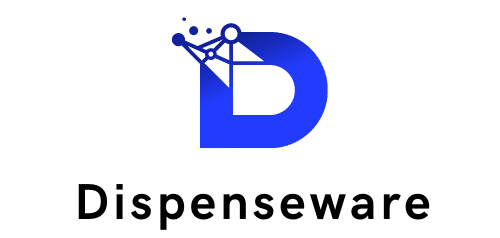The health and wellness landscape is rapidly evolving, with technology at the forefront of this transformation. Artificial Intelligence (AI) is redefining personalized healthcare, offering unprecedented opportunities to tailor wellness programs to the specific needs of individuals. As employers increasingly recognize the benefits of healthy employees, they are turning to AI-driven solutions to provide support and improve the well-being of their workforce. By leveraging data, AI has the potential to revolutionize how employees engage with health wellness initiatives, making them more effective, accessible and tailored to each individual’s unique health profile.
In this article, we explore the myriad opportunities that AI presents in the development and delivery of employee wellness programs. We’ll delve into how AI can help employers provide personalized care, support mental health, and enhance fitness regimens. Additionally, we’ll touch upon the ethical considerations and the role of real-time data in AI-driven wellness solutions. Whether you are a stakeholder in the wellness industry, an HR professional, or an employee interested in your own health, understanding the potential of AI in this field is essential.
A lire aussi : How is ai transforming the approach to cybersecurity in businesses?
The Role of AI in Personalizing Wellness Programs
Personalization is the cornerstone of effective wellness programs. Each individual’s health journey is distinct, with unique challenges and goals. AI stands out as a powerful tool in delivering personalized health solutions on a large scale.
Understanding Individual Health Data
One of AI’s most significant advantages is its ability to analyze vast amounts of data quickly and accurately. By sifting through employee health data, AI algorithms can identify patterns and predict health risks specific to each person. This insight enables healthcare providers and employers to design wellness programs that address the particular needs of their employees.
Cela peut vous intéresser : How can ai enhance real-time language translation for businesses?
Customizing Recommendations
With access to personalized health data, AI systems can recommend tailored exercise plans, nutrition guides, and stress management techniques. These recommendations can be adjusted in real time as the AI learns more about an individual’s behavior, preferences, and health outcomes.
Enhancing Engagement and Outcomes
AI-driven wellness programs can nudge employees towards healthier behaviors through personalized reminders and motivational messages. By providing support that resonates on a personal level, these programs are more likely to improve engagement and yield positive health outcomes.
AI’s Impact on Mental Health Support
Mental health is an integral part of overall well-being, and AI presents significant opportunities to provide better mental health support within wellness programs.
Real-Time Monitoring and Intervention
AI technologies can monitor signs of stress or mental health issues by analyzing data from various sources, such as employee surveys or wearable devices. This capability allows for real-time intervention, offering immediate support when employees need it most.
Access to Resources and Therapy
AI-driven platforms can provide employees with resources such as articles, videos, and self-help tools to support their mental health. Additionally, AI chatbots can offer a first line of psychological support, guiding individuals to appropriate care when necessary.
Personalized Mental Health Care Plans
AI can help create individualized mental health care plans by considering the specific stressors and mental health challenges that an employee may face. This approach ensures that employees receive the most relevant resources and support for their mental health needs.
Leveraging AI for Exercise and Fitness
Exercise is a vital component of wellness programs, and AI is transforming how fitness is incorporated into employee health initiatives.
Personalized Fitness Plans
AI algorithms are adept at creating customized fitness plans based on an individual’s goals, fitness level, and preferences. By analyzing data from past workouts and physical assessments, AI can help employees achieve better results through tailored exercise routines.
Real-Time Feedback and Adjustments
Wearable devices equipped with AI can provide real-time feedback during workouts, allowing adjustments to be made on the spot. This immediate feedback helps employees exercise more effectively and avoid injuries.
Virtual Fitness Coaching
AI-powered virtual coaches can guide employees through workouts, providing encouragement and ensuring correct form. This technology offers the benefits of personal training at a fraction of the cost, making fitness support more accessible to all employees.
Ethical Considerations in AI-Driven Wellness
While AI offers many benefits, ethical considerations must be addressed to ensure these technologies are used responsibly within wellness programs.
Data Privacy and Security
The handling of personal health data is a significant concern. Employers and wellness program providers must ensure that AI systems comply with data protection regulations and that employee information is kept confidential and secure.
Bias and Fairness
AI systems are only as unbiased as the data they are trained on. It is crucial to ensure that wellness programs driven by AI do not inadvertently discriminate against certain groups of employees.
Transparency and Consent
Employees should be informed about how their data is used and the role of AI in their wellness programs. Obtaining informed consent is essential for maintaining trust and encouraging participation.
AI in Health and Wellness: The Future of Workplace Wellness
The integration of AI into health and wellness programs signifies a new era in workplace wellness. By harnessing the power of machine learning and real-time data analytics, employers can offer more sophisticated and effective wellness solutions that cater to the individual needs of their employees.
A Tailored Approach to Wellness
AI enables the creation of wellness programs that are truly personalized, going beyond one-size-fits-all solutions. These advanced programs can adapt over time, learning from the outcomes they produce to become even more effective.
A Proactive Stance on Health
AI’s predictive capabilities allow wellness programs to move from reactive to proactive care. Instead of waiting for health issues to arise, AI can help anticipate and prevent them, promoting a healthier workforce overall.
A Holistic View of Employee Health
Finally, AI fosters a more holistic view of health by considering physical, mental, and emotional well-being. With AI’s comprehensive approach, wellness programs can better support employees in all aspects of their health, leading to a more productive and satisfied workforce.
In conclusion, the opportunities for AI in customized health and wellness programs are vast and transformative. By personalizing care, supporting mental health, enhancing fitness regimens, and addressing ethical considerations, AI can significantly improve the effectiveness of wellness initiatives. As the wellness industry continues to evolve, AI-driven solutions will play an increasingly important role in shaping the future of employee health and workplace wellness.






